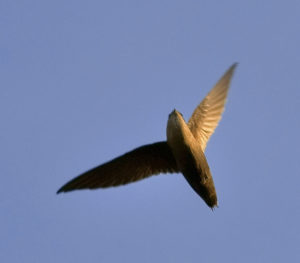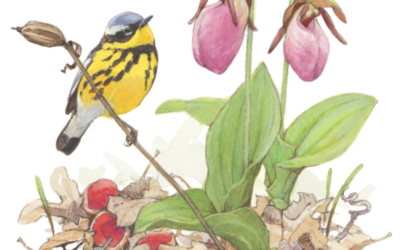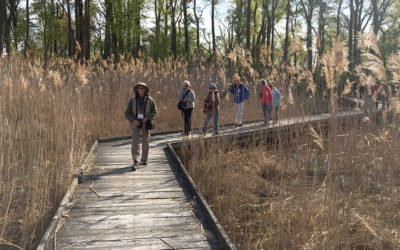OOS Board Rejects Industrial Activities in Ohio State Parks
In response to concerns expressed by our members and other birding organizations in Ohio, the OOS Board of Directors decided it was our role to take a leadership position and formally take a stand on specific issues related to fracking in Ohio.
While the state of Ohio is desperate for funding, Ohio’s birders are stepping up to say fracking and timbering in our state parks is not an appropriate solution to our monetary short falls. While many Ohioans are unaware of the gravity of this situation, more than a year has passed since the passage of HB 133 (Ohio State’s Biennial Budget Bill), which opened Ohio’s State Parks to oil and gas drilling and provisions for commercial logging. Public records show officials have been working to abide by the mandates of this new law: inventorying and classifying state owned parcels; checking titles; and clearing any encumbrances. All of these actions are to move forward on the drilling and logging of state parks and public lands.
Your Board of Directors of the Ohio Ornithological Society and several of Ohio’s Audubon Societies are rejecting these measures as a short-sighted and undesirable solution. Our state parks make up less than 3% of Ohio’s land mass, and have been set aside as repositories for bio-diversity, where Ohioans can seek nature and enjoy the scenic rivers and the best wildlife watching Ohio has to offer.
Industrial activities, such as logging and fracking, will detract from the inherent value of these quiet places, and the noise and increased traffic are not conducive to the uses for which these parks were set aside. In fact, we deem them to be detrimental to the avian life found within.
We expect the State of Ohio to honor its commitment to our forefathers: to preserve intact the lands and rivers of the Ohio State Parks.
Open Letters From the OOS
The Importance of Chimney Swift Conservation
News & Events
Register for Warblers & Wildflowers Weekend 2024
Registration is now open! Warblers and Wildflowers Weekend 2024 (April 26-28) at Shawnee State Park
2024 Regional Director Birdwalks
Join the OOS Regional Director Birdwalks! Every year, the Regional Directors of the Ohio Ornithological Society lead a birdwalk in their region. Mark your calendars and join them for a fun morning of birding. Learn about birds and birding areas in your region OR...


